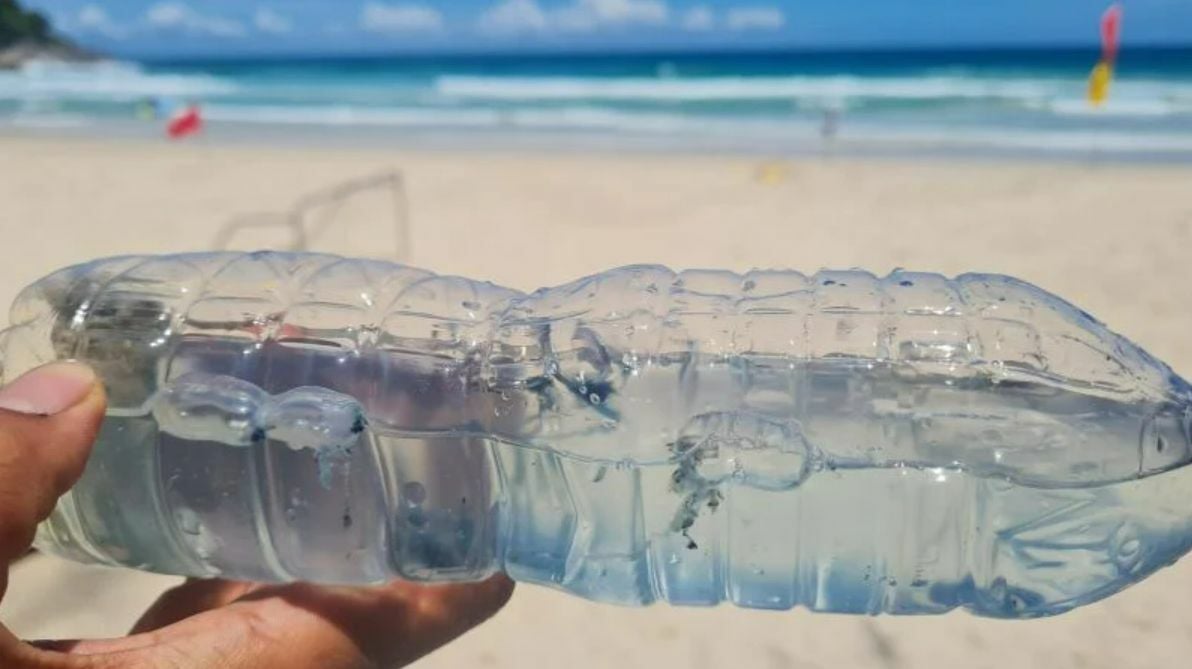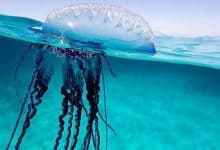Krabi bluebottle: Officials deny Portuguese man-o-war at Phi Phi Islands

Despite recent media reports, officials have confirmed that the dangerous Krabi bluebottle Physalia, also known as the Portuguese man-o-war, has not been found on Phi Phi Islands.
Last week, Phuket lifeguards raised concerns about the presence of the venomous hydrozoan on the islands, causing alarm for tourists’ safety. However, Ratchanok Phaenoi, Chief of Hat Noppharat Thara-Mu Ko Phi Phi National Park, dismissed these claims over the weekend.
Following reports of the creatures being found on some beaches in neighbouring Phuket, a survey was conducted but yielded negative results, according to the Bangkok Post. Although personnel from the Department of National Parks and Wildlife Conservation (DNP) did not find any Portuguese man-o-war, Ratchanok assured that officials would remain vigilant due to the potential danger posed to tourists by the Krabi bluebottle Physalia.
The Portuguese man-o-war, sometimes mistakenly referred to as jellyfish, washed up on Phuket beaches, including Patong, Nai Har, Kata, Kata Noi, and Haithon, last week. The Phuket Lifeguard Service shared several photos of the blue bottles on Facebook, showing that more than just a few had been discovered.
Lifeguards advised that anyone stung should seek help from beach lifeguards or visit a medical facility. They also urged people to limit self-treatment to washing the affected area with seawater and removing any visible tentacles.
If feasible, the injured area can be soaked in warm water for pain relief for 20 minutes. However, seeking professional medical care is always the best course of action.
A few days ago, Phuket lifeguards warned beachgoers and swimmers to be on high alert for the presence of poisonous jellyfish on the island. These life-threatening creatures have prompted increased vigilance to ensure the safety of tourists and locals alike.
The Phuket Lifeguard Service issued a high alert warning due to the presence of blue bottle Physalia, urging everyone to exercise extreme caution. Read more HERE.
Latest Thailand News
Follow The Thaiger on Google News:


























